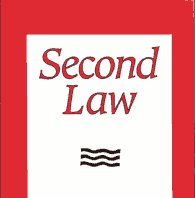“Nothing in life is certain except death, taxes, and the second law of thermodynamics.”

‘The Second Law of Thermodynamics’ also known as ‘Entropy’ or ‘Arrow of Time’ is perhaps the biggest, most powerful, most general idea in all of science. Why paper, trees, coal, gas and all things like them burn (and why people "should" spontaneously catch fire in air), why sand and dry ice even in pure oxygen can't ever burn, why the sun will eventually cool down, why iron rusts (but not why it rusts faster nearer the ocean), why there are hurricanes or any weather at all on earth, what makes things break, why houses get torn apart in tornadoes or explosions, and perhaps the most important thing for us - why everything living tends to die.
Who cares about the second law of thermodynamics?
Well, anyone who wonders how the material world, our world of energy and matter, works.
Look at the direction that energy flows in any happening or process or event. That is the first step to understanding what the second law of thermodynamics is and what it applies to. “Energy spontaneously tends to flow only from being concentrated in one place to becoming diffused or dispersed and spread out.”
The second law is a straightforward law of physics with the consequence that, in a closed system, you can't finish any real physical process with as much useful energy as you had to start with — some is always wasted. This means that a perpetual motion machine is impossible. The second law was formulated after nineteenth century engineers noticed that heat couldn’t pass from a colder body to a warmer body by itself.
The perfect illustration is: A hot frying pan cools down when it is taken off the kitchen stove. Its thermal energy ("heat") flows out to the cooler room air. The opposite never happens.
A glass falls down from the top of a table and breaks into pieces. The opposite never happens.
Air in a high-pressure tyre shoots out from even a small hole in its side to the lower pressure atmosphere. The opposite never happens.
The big deal is that all types of energy spread out like the energy in that hot pan does (unless somehow they're hindered from doing so) They don't tend to stay concentrated in a small space; they flow toward becoming dispersed if they can -- like electricity in a battery or a power line or lightning, wind from a high pressure weather system or air compressed in a tire, all heated objects, loud sounds, water or boulders that are high up on a mountain, your car's kinetic energy when you take your foot off the gas. All these different kinds of energy spread out if there's a way they can do.
Run that Titanic movie as the ship hits the iceberg. See those steel plates ripped open and the ship begin to sink. Realistic, right? Can you imagine a real happening in which the reverse occurs? A sinking ship whose steel side heals up as it comes up out of the water and floats? Ridiculous! Too stupid to think about. But why is it stupid? Because it is so improbable from our experience. Only a movie run backward would show that kind of unrealistic fantasy. The second law isn't some weird scientific idea. It fits with everything common happening that we know.
A swimmer doesn't come shooting up out of the water to the diving board, rocks in a valley don't suddenly roll up a mountain, outside air doesn't rush into a flat tire, batteries don't get charged by sitting around. Those events all would have energy spontaneously become more concentrated, the opposite of energy spreading out.
The second law points the direction of how we feel time goes.
Our psychological sense of time is based on the second law.
It summarizes what we have seen, what we have experienced, what we think will happen.
Hence, it’s also known as the Arrow of Time.

Entropy just measures the spontaneous dispersal of energy: how much energy is spread out in a process, or how widely spread out it becomes – as a function of temperature.
The second law always predicts increase in dispersed energy or entropy in the universe. We humans tend to think of concentrated energy as ‘order’ and dispersed energy as ‘disorder’. Inflated tyre – order, Punctured tyre – disorder; A glass sitting on top of table – order, broken glass on ground – disorder. Thus, we can state that there is always an tendency towards increase of disorder in the universe.
If I hold a small rock in my fingers so it is ready to fall, it has potential energy concentrated in it because it is up above the ground. If the second law is so great and powerful, why doesn't the energy that has been concentrated in the rock spread out? Obviously, it can't do that because my fingers are "bonding" to it, keeping it from falling. The second law isn't violated. That rock tends to fall and diffuse its energy to the air and to the ground as it hits -- and it will do so spontaneously by itself, without any help -- the second I open my fingers and "unbond" the rock.
Important: It is a tendency rather than a prediction of what will happen right away.
Energies can be blocked in systems over a time spanning from few microseconds to few hours to few years to millions of years or even more. However, the energies will spread out sometime or the later for sure.
Blockage of the second law is absolutely necessary for us to be alive and happy. Not one of the complex chemical substances in our body and few in the things we enjoy would exist for a microsecond if the second law wasn't obstructed. Its tendency is never eliminated but fortunately for us, there are a huge number of compounds in which it is blocked for our lifetimes and even far longer.
The second law is the Greatest Good and the Biggest Bad to us:
The GOOD: Because of the second law -- the direction of energy flow -- life is possible.
We can take in concentrated energy in the form of oxygen plus food and use some of that energy unconsciously to synthesize "uphill" complex biochemicals and to run our bodies, consciously for mental and physical labor, excreting diffused energy as body heat and less concentrated energy substances.
We can use concentrated energy fuels (e.g., gasoline/coal, plus oxygen) to gather all kinds of materials from all parts of the world and, regardless of how much energy it takes, arrange them in ways that please us. Similarly, we can effect millions of non-spontaneous reactions -- getting pure metals from ores, synthesizing curative drugs from simple compounds, altering DNA.
We can make machines that make other machines, machines that mow lawns, move mountains, and go to the moon. We can make the most complex and intricate and beautiful objects imaginable to help or delight or entertain us.
The BAD: Because of the second law -- the direction of energy flow -- life is always threatened.
Every organic chemical of the 30,000 or more different kinds in our bodies that are synthesized by nonspontaneous reactions within us is metastable. All are only kept from instant oxidation in air by activation energies. (The loss or even the radical decrease of just a few essential chemicals could mean death for us.)
Living creatures are essentially energy processing systems that cannot function unless a multitude of "molecular machines", biochemical cycles, operate synchronically in using energy to oppose second law predictions. All of the thousands of biochemical systems that run our bodies are maintained and regulated by feedback subsystems, many composed of complex substances. Most of the compounds in the feedback systems are also synthesized internally by thermodynamically nonspontaneous reactions, effected by utilizing energy ultimately transferred from the metabolism (slow oxidation) of food. When these feedback subsystems fail -- due to inadequate energy inflow, malfunction from critical errors in synthesis, the presence of toxins or competing agents such as bacteria or viruses -- dysfunction, illness, or death results: energy can no longer be processed to carry out the many reactions we need for life that are contrary to the direction predicted by the second law.
You can't get any better for good -- that living is possible due to the second law. And you can't get much worse for bad -- that death is always possible too, due to the second law.
It is really the mother of all serious Murphy's Laws that apply to things.
Still more important to one's philosophy about life, these chemical ideas can startle us into seeing how fortunate we all are: that things don't go wrong more often!
Shouldn't "Why me?" be our near-constant question of wonder and delight at being alive and being able to move and think and create -- in a second-law world that favors dispersed energy and inert sand? Knowledge of the second law makes unrealistic the human cry of "Why me?" that is so frequent at times of tragedy.
At such times, the only rational response is "Why not me?” even though then it is emotionally quite unacceptable.
Life is hard. But it's harder if you don't know how the material world works!
Quotes including the second law
"If someone points out to you that your pet theory of the universe is in disagreement with Maxwell's equations, then so much the worse for Maxwell's equations. And if your theory contradicts the facts, well, sometimes these experimentalists make mistakes. But if your theory is found to be against the Second Law of Thermodynamics, I can give you no hope; there is nothing for it but to collapse in deepest humiliation"--- Sir Arthur Eddington
"Nothing in life is certain except death, taxes and the second law of thermodynamics. All three are processes in which useful or accessible forms of some quantity, such as energy or money, are transformed into useless, inaccessible forms of the same quantity. That is not to say that these three processes don't have fringe benefits: taxes pay for roads and schools; the second law of thermodynamics drives cars, computers and metabolism; and death, at the very least, opens up tenured faculty positions"---Seth Lloyd, writing in Nature 430, 971 (26 August 2004); doi: 10.1038/430971a
"A good many times I have been present at gatherings of people who, by the standards of the traditional culture, are thought highly educated and who have with considerable gusto been expressing their incredulity at the illiteracy of scientists. Once or twice I have been provoked and have asked the company how many of them could describe the Second Law of Thermodynamics. The response was cold: it was also negative."---C.P. Snow Rede Lecture in 1959 entitled "The Two Cultures and the Scientific Revolution".
Reference Links and Credentials:
Second Law
entropysimple
shakespeare2ndlaw
entropysite
Frank L. Lambert, Ph. D.
Professor Emeritus (Chemistry)
Occidental College
Los Angeles, CA 90041






No comments:
Post a Comment